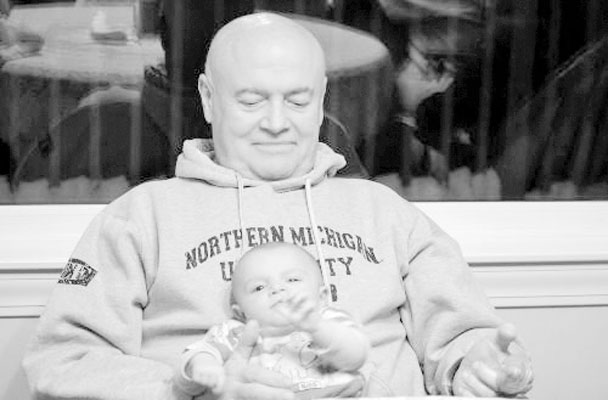Ken Godfrey, athletic director and special assistant to the president, was diagnosed with acute myeloid leukemia in October. He has worked at Northern for over 20 years and was hired as athletic director in 2003.
“My whole life has changed,” Godfrey said. “You look at things a lot differently, and I guess one thing I really appreciate are people and the support and everything that I’ve got, from my family to all of my friends and everything like that. It’s been tremendous.”
Godfrey has gone through three bouts of chemotherapy, and this week he is being tested at the Mayo Clinic in Rochester, Minn. to see if he is able to handle a possible marrow transplant, after a donor was found for him about two weeks ago. If Godfrey is confirmed as able to withstand the transplants, he will remain at the Mayo clinic for a couple of months.
“I really miss being at Marquette and at NMU,” Godfrey said. “It’s really a void in my life right now. But right now, my first priority is to get well.”

Finding a donor for bone marrow is difficult to do. According to Michigan Blood, only 70 percent of people in need are able to find it in his or her family. Godfrey experienced this and wasn’t able to use his brother’s marrow; however, he found a match within the National Marrow Donor Program.
“This has been a very educational thing for me also, to learn about the need out there for bone marrow transplant donors and things,” Godfrey said. “It’s from the young to the old who need this. … I think there are a lot of people who aren’t aware of it.”
Before Godfrey found out about the possible donor, he agreed to lend his name to the upcoming marrow drive on Feb. 4, 5 and on Tuesday, Feb. 8 at NMU. Though the drive will not help Godfrey directly, it will work to register more people for the National Marrow Donor Program.
“I think you go because you want to support him, but also you’re supporting everyone else who’s going through this process,” said Brian Gaudreau, associate director of athletic programming.
On Friday and Saturday, the drive will occur at the Lake Superior State Hockey Series located in the Vandament Arena. It will also occur during the NMU Health Fair on Tuesday, Feb. 8. Testing involves having one’s mouth swabbed, and those who are considering it will be told what is implied if they are registered.
“The key thing about getting tested though is, if you’re going to get tested and you’re going to get entered on the registry, you have to be fully committed to answering the call if you were to be called,” Gaudreau said. “There are a lot of myths out there about how painful it is and what you go through and all that kind of stuff, but there’s a lot of good information out there that will explain that. There is some discomfort, but it’s not what people have been led to believe.”
A part of the drive includes raising money to pay for the testing and registrations. Gaudreau hopes to do this by asking people during the hockey games on Friday and Saturday to donate money in buckets that are going to be passed through the stands. Student athletes will be the ones responsible for passing the buckets. It is also suggested that people who are getting tested give a donation, but it is not required.
“Anyone that donates or wants to donate and get tested is not required to pay anything or give a donation,” Gaudreau said. “It’s suggested that a $25 donation be given, but they’re not going to turn anyone away.”
Another aspect to the marrow drive is asking students to volunteer to help the people who will be administering the test. Gaudreau and the NMU Volunteer Center are pairing up to make this easier. Students who are interested in volunteering can contact the Volunteer Center at [email protected] or call the office at 906-227-2466. They are looking for people to work about two hour shifts on either Friday or Saturday, according to Hanna Kratz, assistant coordinator for the Volunteer Center.
Gaudreau said that participating in any aspect of this drive is what makes it a meaningful experience for everyone involved.
“If you volunteer, you’re helping add to the registry, you’re making the process easier for people and you’re that smiling face that people are going to see and be greeted by,” Gaudreau said. “If you’re getting tested, then you’re going to make a sacrifice hopefully someday, and you’re going to have a unique opportunity to save somebody’s life.”




























